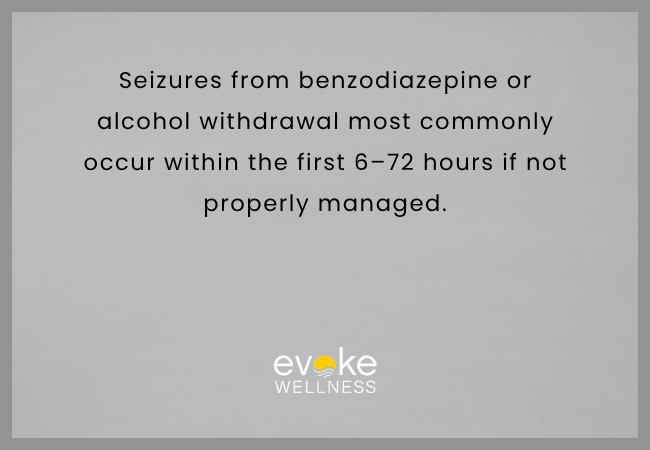When someone enters detox, they are taking one of the most courageous steps in their recovery journey—confronting physical dependence head-on. This process, while necessary and often life-saving, can be physically and emotionally intense. The first hours and days of detox are often the most challenging, as the body begins to eliminate harmful substances and recalibrate its internal balance. Understanding what to expect in detox and how support systems help ease the discomfort can empower individuals to take this brave step forward with greater confidence.
At Evoke Wellness At Hilliard, we know that each person’s detox experience is different, shaped by the type of substance used, the length and severity of the addiction, and individual health factors. That’s why we provide medical expertise and compassionate support throughout every phase of the process, ensuring individuals never face these symptoms alone.
What Happens During Detox
Detoxification is the body’s natural process of clearing toxins from the system. In a clinical setting, this process is carefully managed to reduce withdrawal symptoms and avoid complications. The withdrawal symptoms that arise during detox are the body’s response to the sudden absence of a substance it has come to rely on. These symptoms can range from mild discomfort to severe medical emergencies depending on the drug or alcohol involved.
In most cases, the detox process unfolds in several stages, typically beginning within a few hours after the last use. Initial symptoms are often physical—sweating, headaches, nausea—but can soon evolve into more intense psychological symptoms such as anxiety, irritability, and mood swings. The purpose of a supervised detox is to help patients manage these symptoms safely while preparing them for further therapeutic treatment.
Physical Symptoms You Might Experience
The body reacts strongly when suddenly deprived of addictive substances. Physical detox symptoms are common and may vary widely depending on the substance used. Common physical symptoms include:
-
Nausea and vomiting
-
Muscle aches and body pain
-
Tremors or shaking
-
Sweating or chills
-
Rapid heartbeat
-
Headaches
-
Fatigue and sleep disturbances
For example, individuals withdrawing from opioids may experience severe muscle pain and gastrointestinal upset, while those detoxing from alcohol may suffer from increased heart rate, tremors, and, in extreme cases, seizures or hallucinations. At Evoke Wellness At Hilliard, we monitor each patient closely to manage these symptoms with appropriate medications, hydration, and rest.
Emotional and Psychological Symptoms
While physical symptoms are often the most noticeable at first, psychological symptoms can be equally distressing. Detox can trigger intense emotions as the brain adjusts to functioning without substances. Common emotional or mental symptoms include:
-
Anxiety or panic attacks
-
Depression or mood swings
-
Irritability and agitation
-
Insomnia or vivid nightmares
-
Feelings of hopelessness or fear
These symptoms can be overwhelming without proper support. Our clinical team at Evoke Wellness At Hilliard provides therapeutic interventions to help individuals manage emotional distress, including one-on-one counseling, calming environments, and techniques for grounding and self-soothing.
Managing Symptoms Through Personalized Care
The foundation of effective detox is personalized care. No two individuals experience withdrawal the same way, and our team tailors every detox plan to the patient’s needs. This starts with a thorough intake assessment, where we gather information about substance use history, physical health, co-occurring mental health issues, and personal preferences. This information allows us to design a detox strategy that anticipates potential complications and prioritizes safety and comfort.
Our clinicians may prescribe medications such as benzodiazepines for alcohol withdrawal, anti-nausea drugs for gastrointestinal symptoms, or non-addictive sleep aids to improve rest. Nutrition and hydration are also critical, and our staff ensures that individuals receive nourishing meals and adequate fluids to support physical healing.
The Role of Environment in Symptom Relief
Comfort and surroundings play a significant role in managing detox symptoms. A calm, supportive environment can ease emotional distress and promote healing. At Evoke Wellness At Hilliard, we’ve created a setting that fosters peace, safety, and dignity throughout the detox process.
Private rooms, round-the-clock supervision, and access to quiet spaces or outdoor areas allow patients to rest and recover without unnecessary stress. Having a structured daily routine with consistent check-ins provides reassurance and predictability, which are especially important during a vulnerable time.
Support for Co-Occurring Conditions
Many individuals entering detox also live with co-occurring mental health conditions such as depression, anxiety, or PTSD. When these issues are left untreated, they can intensify withdrawal symptoms and increase the risk of relapse. That’s why it’s critical to address both substance use and mental health together.
As a Mental Health Treatment Center in Ohio, Evoke Wellness At Hilliard provides integrated care that supports the full spectrum of recovery. Licensed mental health professionals are involved from the beginning of detox, offering assessments and interventions that help patients stabilize emotionally and prepare for the next phase of treatment.
Preparing for the Next Phase of Treatment
Detox is only the first step in recovery. After withdrawal symptoms begin to subside, individuals often feel a renewed sense of clarity and determination—but also vulnerability. This is a pivotal moment. Continuing care beyond detox is essential for building long-term sobriety and developing the skills needed to maintain it.
Once medically stable, clients are encouraged to transition into structured programs such as our Residential Treatment Program in Ohio, where they begin exploring the emotional and behavioral aspects of addiction. Therapy, group support, life skills development, and relapse prevention strategies all become part of the healing journey.
It’s during the most challenging hours—often the first 24 to 72 hours of detox—when our team becomes a critical lifeline. At our Drug Detox Center in Ohio, we provide 24/7 medical monitoring, rapid-response protocols for emergency symptoms, and continuous emotional support. Nurses, counselors, and recovery specialists are present around the clock to adjust treatment plans as needed and offer reassurance in moments of distress.
By combining evidence-based medicine with empathy and respect, we ensure no one ever feels alone during the hardest parts of detox.
Medication-Assisted Treatment and Safety Measures
Some individuals benefit from medication-assisted treatment (MAT) during detox, especially when detoxing from alcohol or opioids. MAT involves the use of FDA-approved medications to reduce cravings and withdrawal symptoms without inducing a high.
As a certified Alcohol Detox Center in Ohio, Evoke Wellness At Hilliard offers MAT options when clinically appropriate. Medications like buprenorphine, naltrexone, or acamprosate may be used short-term to help ease patients through withdrawal and prepare them for further care. Our team discusses these options with each patient to ensure they understand the purpose and risks of any medication.
Holistic Approaches to Easing Discomfort
Alongside medical treatment, we incorporate holistic and complementary strategies into our detox programs. Techniques like deep breathing, mindfulness meditation, and guided imagery can reduce anxiety and make symptoms feel more manageable.
Our Acute Detox Center in Ohio encourages patients to explore calming practices that support the mind-body connection. These approaches not only relieve symptoms in the moment but also lay the groundwork for healthier coping strategies in the long term.
Why Choose Us?
Evoke Wellness At Hilliard is more than a detox facility—it’s a partner in your recovery. Our compassionate, skilled team has helped thousands of individuals begin their sobriety journey in a safe and supportive environment. As a trusted Intensive Inpatient Treatment Program in Ohio, we provide wraparound care that meets medical needs while honoring emotional and spiritual healing. Our goal is to restore dignity, build trust, and empower individuals to reclaim their lives with confidence.
Conclusion
Detox is a challenging but necessary first step on the path to recovery. The symptoms, while often intense, can be managed safely and effectively with the right clinical support and compassionate care. At Evoke Wellness At Hilliard, we are committed to walking beside each individual as they navigate the early days of sobriety and prepare for lifelong healing.
If you or someone you love is struggling with substance use, don’t face it alone. Call Evoke Wellness At Hilliard today at 866.430.9267 to take the first step toward a healthier, substance-free life.
Frequently Asked Questions (FAQs)
What are the most common symptoms during detox?
Common symptoms during detox include nausea, sweating, insomnia, anxiety, tremors, and mood swings. The intensity and duration vary depending on the substance.
How long do detox symptoms typically last?
Most acute symptoms occur within the first 72 hours and subside within a week. Some lingering effects, like fatigue or mood changes, can last longer and vary by individual.
Is medical detox necessary for everyone?
Medical detox is highly recommended for those withdrawing from alcohol, opioids, or benzodiazepines due to the risk of severe or life-threatening symptoms.
What medications are used to manage detox symptoms?
Depending on the substance, medications may include anti-anxiety drugs, anti-nausea meds, sleep aids, or opioid agonists like buprenorphine under supervised care.
Can detox treat mental health issues too?
Detox focuses on physical stabilization, but integrated programs like those at Evoke Wellness At Hilliard address co-occurring mental health conditions as part of the process.
What happens after detox is complete?
Following detox, most individuals continue care in residential or outpatient treatment programs where they begin therapy, skill-building, and relapse prevention.




